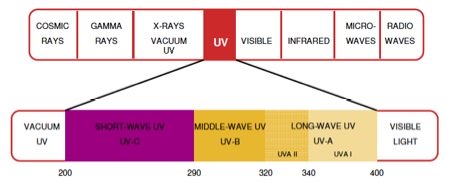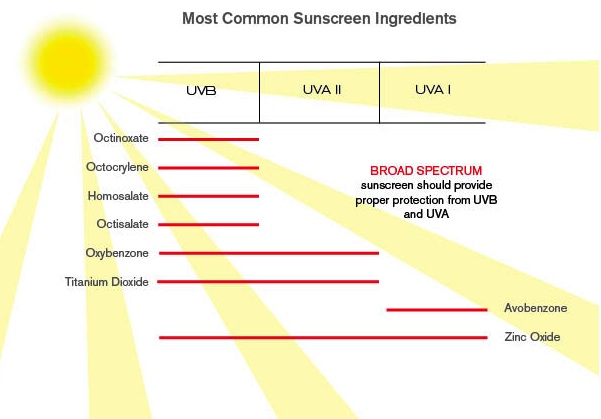Chemical free sunscreen
So, if you're looking for a chemical free sunscreen, in my mind you're essentially looking for a sunscreen that is non-toxic.
 Embrace the sunshine with chemical free sunscreen
Embrace the sunshine with chemical free sunscreenNon-toxic is just not that easy a task!
If you look at the ingredients listed on sunscreen packaging, I find myself thinking how incredibly difficult it is to know what is toxic and what not. According to many environmental and health groups, the majority of sunscreens are toxic either to the environment or to us humans or animals using them, or both.
It appears the key thing, is to look for a sunscreen using mineral sunscreens only - zinc oxide or titanium dioxide - to be able to embrace the sunshine healthily.
No chemicals!
Application of chemical free sunscreens difficult?
Although mineral sunscreens are very effective at blocking the sun's UVA and UVB rays, many people find they are not as easy to apply as the chemical based ones. For this reason they abandon the healthier choice and go back to using the toxic, chemical sunscreen option.
Personally I choose to use no sunscreen at all,
than slather on a toxic chemical one!
 UV ray spectrum
UV ray spectrumChemical free sunscreen, or mineral sunscreens as they are otherwise known, are known to block and reflect the sun's UV rays, rather than absorb them as the chemical based sunscreens do.
Zinc oxide in particular, provides a blocking ability for very effective protection from the sun's UV rays, in that it not only blocks both UVA and UVB rays, it blocks both UVA I and UVA II. This makes it by far the best sunscreen ingredient in my opinion. see diagram below.

EWG on chemical free sunscreens
The Environmental Working Group (EWG) have been very outspoken about their research into the health vs toxicity of sunscreens supplied globally. Releasing an updated report annually, they report on every ingredient used within individual sunscreens as well as rate them overall.
As far as safe sunscreens go, EWG recently released its annual "Sunscreen Guide," which contains a database of more than 1,800 sunscreen products that the group reviews. You can read their executive summary here and see their opinions on what the best of these 1800 are.
One of the key conclusions is that the EWG recommends choosing mineral sunscreens over chemical sunscreens. i.e. chemical free sunscreens. They note that mineral sunscreens containing zinc oxide or titanium dioxide are increasing in popularity with manufacturers as well as the public.
They consider a mineral based sunscreen to be "the right choice for children, people with sensitive skins, or anyone wanting the best protection for UVA without using compromising chemicals like oxybenzone". Oxybenzone is considered to be potentially hormone-disrupting and is used in almost every chemical based sunscreen.
The trouble with sunscreen chemicals

Many sunscreens are absorbed into our bodies and can affect our health.
EWG's research uncovered that there are as much as 65 sunscreen brands advertised specifically for babies or kids that contain oxybenzone. As a synthetic chemical sunscreen, it absorbs the sun's UV rays while readily penetrating the skin and besides disrupting the body's natural hormones, it can also cause allergic reactions.
Children are at greater risk than adults from any hormone-disrupting substance as they absorb more of the chemical relative to their weight and may not efficiently excrete it.
Besides this, their developing bodies are more sensitive to hormone changes.
Jane Houlihan of the Environmental Working Group has advised that "you want to look out for sunscreens with oxybenzone," saying that their research has implicated oxybenzone as a likely carcinogen, as well as a chemical that is absorbed into the body.
A seal from the Skin Cancer Foundation does not mean that a sunscreen is safe either, EWG has warned, as the foundation will place its seal on any sunscreen that has an SPF rating higher than 15, or on the product of any company that donates $10,000. This is not very encouraging is it?
Fundamentally, EWG recommends using sunscreens made with titanium dioxide or zinc oxide, which are believed to be less dangerous than the newer chemicals. So, you can choose to hold your breath and hope that you'll be OK while applying chemical sunscreens,
or.... you can forego them entirely and stick to chemical free sunscreens.




New! Comments
Have your say... please leave me a comment in the box below.